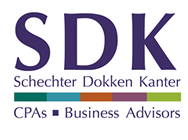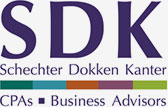Upcoming Changes to Estate and Gift Tax Provisions: What You Need to Know
For many years, the idea of changes to the current estate and gift tax provisions have been proposed and debated. Recently it has become a topic of even more discussion, which is why it is essential to stay informed about potential changes in tax laws, particularly those concerning estate and gift taxes. These provisions can significantly impact individuals’ and families’ financial planning and wealth transfer strategies. In this article, we’ll explore some anticipated changes to estate and gift tax provisions and their potential implications.
Proposed Legislation
In recent months, there has been considerable discussion and proposed legislation related to estate and gift tax provisions. While specific details may vary, it’s essential to highlight some key areas that could undergo changes pending legislative approval.
Potential Reduction in Exemption Thresholds
One notable proposal involves reducing the estate and gift tax exemption thresholds. This could mean a decrease in the amount of wealth individuals can transfer tax-free during their lifetime or at death. Such a change could impact individuals with larger estates, potentially subjecting more estates to taxation.
Even without legislative action, the current estate and gift tax exemption, which was set by the Tax Cuts and Jobs Act in 2017, is set to expire at the end of 2025.Unless Congress acts, the exemption will be cut in half starting in 2026.
Adjustment to Tax Rates
Another area of potential change is the adjustment of tax rates applicable to estates and gifts. While the current tax rates range from 18% to 40%, proposed legislation may alter these rates, either by introducing new brackets or modifying existing ones. These adjustments could influence the overall tax liabilities for affected individuals and families.
Changes to Step-Up in Basis Rules
Additionally, there have been discussions about modifying the step-up in basis rules, which currently allow heirs to adjust the value of inherited assets to their fair market value at the time of the decedent’s death. Any changes to these rules could impact the tax treatment of inherited assets, potentially affecting heirs’ tax obligations upon the sale of such assets.
Potential Implications
Anticipated changes to estate and gift tax provisions can have significant implications for taxpayers and their estate planning strategies. Here are some potential considerations:
Review and Update Estate Plans
Given the uncertainty surrounding future tax laws, individuals with existing estate plans may need to review and update their strategies to adapt to potential changes. This could involve revisiting asset titling, beneficiary designations, and the use of trusts to optimize tax efficiency and asset protection.
Accelerate Gifting Strategies
In light of potential reductions in exemption thresholds or changes to tax rates, individuals may consider accelerating gifting strategies to take advantage of current exemption amounts and tax rates. Strategic gifting can help minimize future tax liabilities while facilitating wealth transfer to future generations.
Consultation with Tax Professionals
Navigating changes to estate and gift tax provisions requires careful consideration and expertise. Consulting with qualified tax professionals, estate planners, or CPA firms like SDK can provide valuable insights and guidance tailored to individual circumstances. These professionals can help assess the potential impact of proposed changes and develop proactive strategies to mitigate tax exposures.
While upcoming changes to estate and gift tax provisions remain subject to legislative developments, it’s crucial for individuals and families to stay informed and proactive in their financial planning efforts. By anticipating potential changes and seeking guidance from tax professionals, individuals can position themselves to navigate evolving tax landscapes effectively and preserve their wealth for future generations. Stay tuned for updates on legislative developments and consult with trusted advisors to ensure your estate planning strategies remain aligned with your goals and objectives. If you have any questions about how SDK can help you navigate the changing landscape of estate planning, please reach out to us at 612-332-5500 or through email at info@sdkcpa.com.


